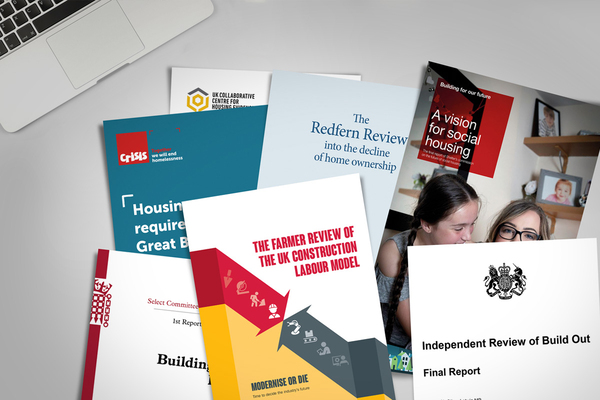You are viewing 1 of your 1 free articles
The Tony Blair Institute is wrong – we do need to build more homes to solve the housing crisis
Last week’s report suggesting supply is not the answer to the housing crisis is just the latest in a series to make this claim, but it remains misleading, writes John Perry
Every so often a researcher pops up to tell us that building more homes isn’t the answer to the housing crisis.
The latest, Ian Mulheirn from the Tony Blair Institute for Global Change, follows on from Danny Dorling (with his book All that is Solid) and many others. None of these opinion-formers appear to pay any regard to the convincing arguments that they are, simply, wrong.
But each time, the arguments about housing numbers have to be aired again if we really do want to tackle the housing crisis.
Mr Mulheirn’s case is, put simply, that there are already more houses than there are households. Furthermore, new homes have been added to supply at a faster rate than new households have formed. Both of these are true.
For example, in 2018 England had 23.2 million households, while it had just over 24 million homes. Also, in England new households are forming at the rate of 165,000 each year; for the past eight years we’ve been adding, on average, 167,000 houses annually to the total stock. The picture doesn’t change much if we look at the whole of the UK.
So, if we’ve got more houses than households, and we’re adding new homes faster than new households are being set up, why do we still have a housing crisis?
“It just so happens that even this low estimate of second-home ownership, combined with empty properties, wipes out the crude surplus of households over dwellings”
Let’s look first at the whole stock, again focusing on England. First, we have to take into account 634,000 empty dwellings. Then we also have to deduct houses used as second homes and kept empty for much of the year – of which 350,000 were reported in the 2011 census, although other estimates put the numbers much higher.
It just so happens that even this low estimate of second-home ownership, combined with empty properties, wipes out the crude surplus of households over dwellings.
And while it can be argued that the number of empties should be reduced, we know that a margin is always going to be needed for turnover.
Mr Mulheirn would say that we are building houses faster than new households are forming, so that’s another indication that we’re keeping up with demand. But while he’s right that there is a small surplus, it has only existed recently.
And in pointing to the surplus he is making a circular argument about household formation, since whether a household forms or not (for example, whether a couple living with parents move to their own house) depends on whether there are houses available.
In other words, as supply grows, hidden households who were sharing, overcrowded or were not even formed (eg two people waiting to get married or to split up) find that they can at last get a home and create a new ‘household’. The household ‘projections’ assess the real ability to move into a new home, not the underlying need.
As Glen Bramley pointed out in his work for Crisis and the National Housing Federation last year, there is a backlog of unmet housing need in England of about four million, taking into account not just concealed and overcrowded households but those living in poor conditions.
The size of this backlog can be debated, but its existence is obvious to everyone who is working to meet housing needs.
Mr Bramley says that if we are going to reduce the backlog year-on-year, and at the same time meet the needs of new households, England needs to build 340,000 new homes per year (the equivalent figure for Scotland is 26,000, and for Wales it’s 14,000).
“In reality the problem with Mr Mulheirn’s report is not so much the detail of his arguments, some of which are very sound, but the headline it has produced: ‘The UK’s housing crisis is not caused by a lack of supply’.”
This is about 120,000 more houses than are being added to the English housing stock at present – and bear in mind that current output is the highest for a decade, yet it is still only two-thirds of what is required.
In reality the problem with Mr Mulheirn’s report is not so much the detail of his arguments, some of which are very sound, but the headline it has produced: ‘The UK’s housing crisis is not caused by a lack of supply’.
It’s correct to point out that supply is not the whole of the answer. As Mr Mulheirn goes on to show, other aspects of the housing market urgently need reform, too.
But to give the impression that insufficient housing supply is not a huge part of the problem is blatantly false.
Not only does this feed the arguments of those who say that we should stop building, it also creates the impression that it is only wilfulness or inefficiency that stand in the way of meeting housing needs.
John Perry, senior policy advisor, Chartered Institute of Housing












